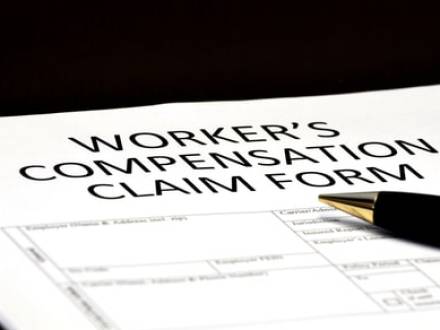Recent Blog Posts
Collecting Damages for a Hit-and-Run Motorcycle Accident
 As a motorcyclist, you know that when a largely unprotected motorcyclist is hit by a 3,000-pound vehicle, he or she will be left with severe injuries more often than not. Motorcyclists also continue to be overrepresented in fatal motorcycle accidents. In 2023, 15 percent of all traffic fatalities were motorcyclists - the highest number of motorcyclists killed in traffic collisions since 1975.
As a motorcyclist, you know that when a largely unprotected motorcyclist is hit by a 3,000-pound vehicle, he or she will be left with severe injuries more often than not. Motorcyclists also continue to be overrepresented in fatal motorcycle accidents. In 2023, 15 percent of all traffic fatalities were motorcyclists - the highest number of motorcyclists killed in traffic collisions since 1975.
Since motorcycles make up only about 3 percent of the total number of registered vehicles, the risks are clear. When a motorcyclist is hit by a driver who then flees the scene of the accident, recovering damages for medical expenses, lost current and future wages, and pain and suffering can be much more complex. If you are the victim of a hit-and-run driver, it can be extremely beneficial to speak to a knowledgeable Plainfield, IL motorcycle accident lawyer.
Could My Workers’ Comp Claim Be Affected by a Prior Injury?
 Some states may deny a workers’ compensation claim if the injured employee had a pre-existing condition or prior injury. The state of Illinois does not automatically disqualify a workers’ compensation claim if you have a pre-existing condition, but you may find that condition becoming the focus of your claim.
Some states may deny a workers’ compensation claim if the injured employee had a pre-existing condition or prior injury. The state of Illinois does not automatically disqualify a workers’ compensation claim if you have a pre-existing condition, but you may find that condition becoming the focus of your claim.
Illinois state law employs the concept of aggravation of an injury when evaluating a workers’ compensation claim for those with pre-existing conditions. If a work-related accident aggravated your pre-existing condition, you are eligible for WC benefits. You should expect to be strongly questioned about the work-related activity and whether it was actually the cause of the exacerbation of your pre-existing condition.
For example, if you have a history of arthritis and pain in your lower back and you take a fall at work, significantly increasing your back pain, you may qualify for compensation. Getting that compensation could be an uphill battle without a strong Plainfield, IL workers’ compensation attorney.
Who Is Liable for a Bus Accident in Illinois?
 Last summer, a Greyhound bus crashed on I-70 in Highland, IL, killing three passengers and injuring more than a dozen others. The crash happened when the bus collided with three semi-trucks parked on the shoulder of an exit ramp near the Silver Lake rest area. In interviews done with passengers following the crash, one passenger claimed the bus driver repeatedly "drove in the middle of the road between the two lanes" and "kept hitting rumble strips on the shoulder side."
Last summer, a Greyhound bus crashed on I-70 in Highland, IL, killing three passengers and injuring more than a dozen others. The crash happened when the bus collided with three semi-trucks parked on the shoulder of an exit ramp near the Silver Lake rest area. In interviews done with passengers following the crash, one passenger claimed the bus driver repeatedly "drove in the middle of the road between the two lanes" and "kept hitting rumble strips on the shoulder side."
Another passenger claimed the bus driver seemed to make no attempt to correct the bus's course before it hit the parked semi-trucks. It was later determined that the Greyhound bus driver had four prior collisions on his record, two of them classified as "preventable." In one of the crash reports from a preventable accident, the driver was deemed "fatigued" and "driving at an unsafe speed for current traffic conditions." Despite this, the driver received no citations.
While traveling by bus is generally considered one of the safer modes of travel, in this instance, it seems like critical issues with the driver were overlooked, creating a personal injury accident. If you are injured in a bus accident, who is liable? The best way to answer this question is to speak to a knowledgeable Plainfield, IL personal injury attorney.
Are Trucking Companies Liable for a Truck Accident?
 Truck accidents are unique for a couple of reasons. First, a fully loaded truck can weigh as much as 80,000 pounds, while the average passenger car weighs somewhere around 3,000 pounds. This significant disparity in size usually results in those in the passenger vehicle sustaining serious or catastrophic injuries or dying from the collision.
Truck accidents are unique for a couple of reasons. First, a fully loaded truck can weigh as much as 80,000 pounds, while the average passenger car weighs somewhere around 3,000 pounds. This significant disparity in size usually results in those in the passenger vehicle sustaining serious or catastrophic injuries or dying from the collision.
In some cases, the truck driver may be at fault, whether because he or she was engaging in distracted driving behavior, driving recklessly or carelessly, driving while impaired, or driving while overly fatigued. The second reason truck accidents are unique is that there is often more than one at-fault party.
Even if the truck driver was at fault, the trucking company that employs the truck driver may also be held liable, along with the loading company and even the truck maintenance company. Because there can be more than one liable party, truck accidents are particularly complex, requiring a highly experienced Plainfield, IL personal injury attorney to ensure a fair settlement.
Negligent Medication Dispensation Causes Harm in Nursing Homes
 When you place your elderly loved one in a long-term care facility, you are placing trust in the staff, expecting them to respect and properly care for all residents. Proper care includes administering medications in a safe, responsible manner. Unfortunately, medication errors are all too common – and are often overlooked as a form of nursing home abuse and neglect.
When you place your elderly loved one in a long-term care facility, you are placing trust in the staff, expecting them to respect and properly care for all residents. Proper care includes administering medications in a safe, responsible manner. Unfortunately, medication errors are all too common – and are often overlooked as a form of nursing home abuse and neglect.
When medications are not dispensed as ordered by a physician, severe adverse health complications and even death can result. If you believe your loved one’s health issues or death are the result of negligent dispensation of medications, speaking to an experienced Plainfield, IL personal injury lawyer can be extremely beneficial.
Different Types of Medication Errors in Nursing Homes
There are many different types of nursing home medication errors, including:
How Your Motorcycle Accident Lawyer Can Address Jury Bias
 There were 3,275 motorcycle accidents in the state of Illinois in 2021. Of those, 168 motorcyclists died from the accident, and 2,381 suffered severe, even catastrophic injuries. Motorcyclists have little to no protection when hit by a 3,000-pound – or heavier – vehicle. Illinois is one of only three states with no motorcycle helmet laws, although the state does require protective eyewear.
There were 3,275 motorcycle accidents in the state of Illinois in 2021. Of those, 168 motorcyclists died from the accident, and 2,381 suffered severe, even catastrophic injuries. Motorcyclists have little to no protection when hit by a 3,000-pound – or heavier – vehicle. Illinois is one of only three states with no motorcycle helmet laws, although the state does require protective eyewear.
The survival rate for a motorcyclist often depends on the severity of the crash, whether the motorcyclist wears protective gear, and his or her experience level. Motorcycle accidents are a leading cause of spinal cord injuries and traumatic brain injuries. According to the NHTSA, more than half of all motorcycle accidents occur in intersections, either because a driver fails to see the motorcyclist or misjudges the distance from the motorcyclist during a left-hand turn.
How an Apgar Score Can Affect Your Medical Malpractice Claim
 About three babies are born with birth injuries every hour across the United States, or about seven babies in every 1,000 deliveries. Many families are left wondering whether a mistake made by a medical provider caused or contributed to their baby’s birth injury. If medical negligence caused a birth injury, a medical malpractice claim can help the family get the medical assistance the child needs now and in the future.
About three babies are born with birth injuries every hour across the United States, or about seven babies in every 1,000 deliveries. Many families are left wondering whether a mistake made by a medical provider caused or contributed to their baby’s birth injury. If medical negligence caused a birth injury, a medical malpractice claim can help the family get the medical assistance the child needs now and in the future.
Birth injuries tend to be more common in males than females because males are often larger. About 80 percent of all birth injuries are considered moderate to severe, and birth injuries are the 4th-leading cause of death among infants. Perhaps your baby suffered a birth injury as a result of medical malpractice. While there are many different factors associated with a medical malpractice claim, you may wonder whether your baby’s Apgar score is one of those factors.
The Independent Medical Examination Role in Workers’ Comp Cases
 Workers who are injured on the job are entitled to workers’ compensation benefits. Under the Illinois Workers’ Compensation Act, this is a no-fault wage replacement system that pays lost wages and medical benefits regardless of how the accident occurred. Workers’ compensation protects employers from lawsuits in most cases unless the injury results from willful or deliberate safety violations on the part of the employer—but this is rare.
Workers who are injured on the job are entitled to workers’ compensation benefits. Under the Illinois Workers’ Compensation Act, this is a no-fault wage replacement system that pays lost wages and medical benefits regardless of how the accident occurred. Workers’ compensation protects employers from lawsuits in most cases unless the injury results from willful or deliberate safety violations on the part of the employer—but this is rare.
Most workers in the state are covered under workers’ compensation, including those hired in Illinois but injured while working in another state when the employer’s primary place of business is in Illinois. Depending on the situation, independent contractors may be eligible for benefits.
When you file for workers’ compensation, you may be asked to undergo an independent medical examination – i.e., from a medical provider other than your normal doctor. It is important that you speak to a knowledgeable Plainfield, IL workers’ compensation attorney as soon as possible after your workplace accident.
Dangers of Black Ice: How Black Ice Forms and How to Stay Safe
 There are at least 150,000 automobile crashes each year due to icy roads. It takes about 10 times longer to stop completely on an icy road than on a dry road. Since about 70 percent of U.S. residents live in places that have icy conditions during the winter months, ice on the roads – especially black ice – can be a major contributor to car collisions. If you have been involved in an auto accident caused by another driver's negligence, contacting an experienced Plainfield, IL personal injury lawyer can be beneficial.
There are at least 150,000 automobile crashes each year due to icy roads. It takes about 10 times longer to stop completely on an icy road than on a dry road. Since about 70 percent of U.S. residents live in places that have icy conditions during the winter months, ice on the roads – especially black ice – can be a major contributor to car collisions. If you have been involved in an auto accident caused by another driver's negligence, contacting an experienced Plainfield, IL personal injury lawyer can be beneficial.
What Is Black Ice and When/Where Does It Form?
Black ice is just ice that forms on roads, sidewalks, and driveways. It is called black ice because it looks like regular pavement when clear ice freezes on top of the pavement. Black ice has no bubbles, making it even harder to detect in advance. The primary danger of black ice – other than slick ice – is the driver’s inability to see the ice before the car is on it.
Temporary Disability Benefits Under IL Workers’ Comp Law
 Illinois worker’s compensation pays benefits for injuries caused either partially or wholly in the workplace. Aggravation of a pre-existing condition, injuries caused by repetitive motions in the workplace, or any other type of injury in the workplace qualify under workers’ compensation for benefits.
Illinois worker’s compensation pays benefits for injuries caused either partially or wholly in the workplace. Aggravation of a pre-existing condition, injuries caused by repetitive motions in the workplace, or any other type of injury in the workplace qualify under workers’ compensation for benefits.
Benefits for workers’ compensation claims are paid regardless of who was at fault for the accident. In return, workers give up the right to sue their employers when they collect workers’ compensation benefits. There are many different types of benefits under workers’ compensation, including:
- Partial wage replacement
- Temporary and permanent disability
- Medical cost coverage for any medical expenses related to workplace injury
- Rehabilitation costs
- Occupational therapy costs
- Beneficiary compensation for a worker who dies as a result of workplace injury






